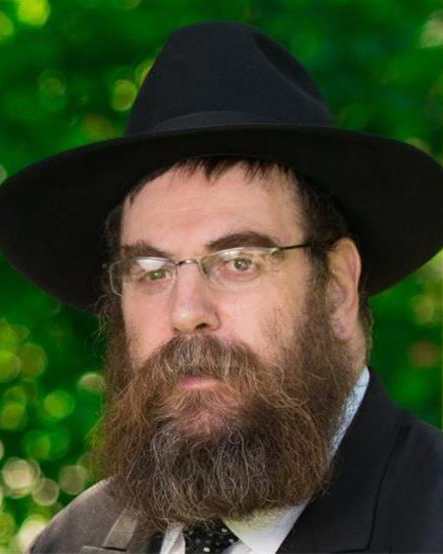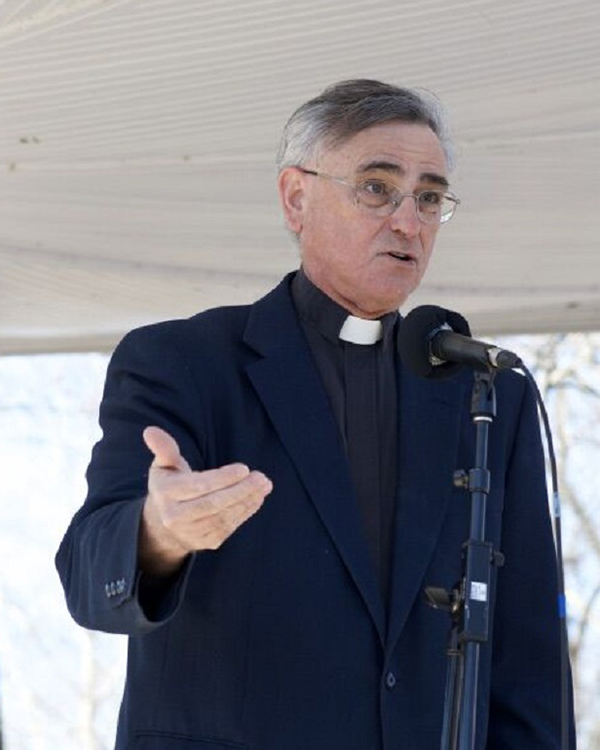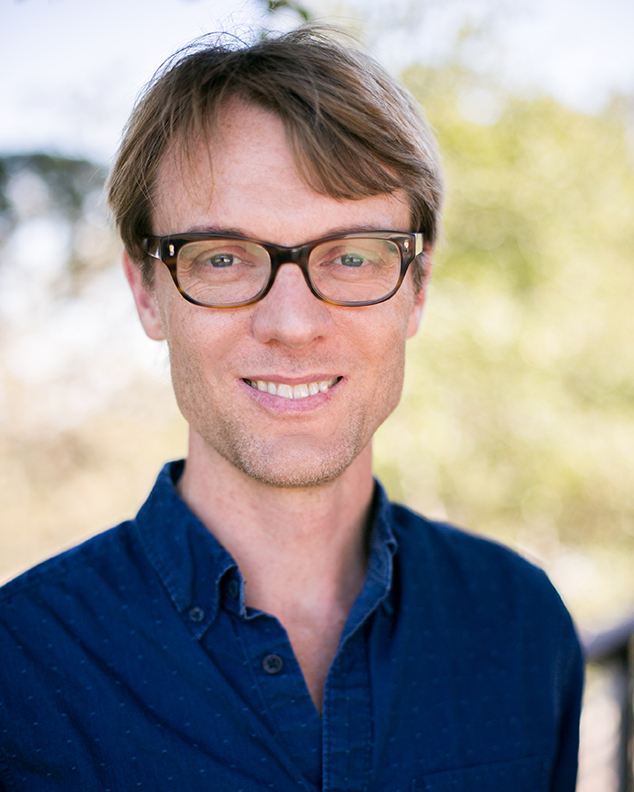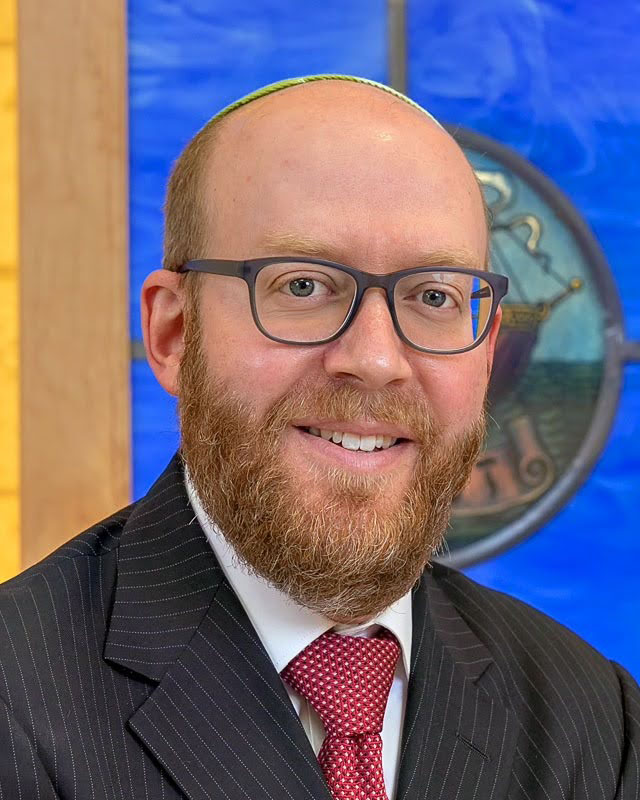Thankfulness: Finding Joy and Appreciation Through Gratitude
Interviews by Donald H. Sanborn III and Lynn Adams Smith | Stained glass by Tiffany Studios
Lance Liverman

Lance Liverman was born and raised in Princeton and met his wife and raised their three children here. The owner of Liverman Associates real estate company, he served on the Princeton Township Committee and Princeton Council for 15 years, and on numerous boards for and in Princeton. He has been of service for decades to First Baptist Church of Princeton on John Street.
I am thankful for so many things. Let’s begin with the basic items we take for granted. I am thankful for life. The list goes on and we must include family (especially my wife and children), friends, church members, neighbors, mentors, dedicated work contractors, and great tenants.
I am grateful for the many residents of Princeton that continue to have their hands open to help others. Princeton is a loving and giving community. It’s easy to pass the blame to others for not helping. But in Princeton, I am so grateful to all of the people and organizations that help our less fortunate.
My belief is you can measure the greatness of a town by how that town helps the less fortunate. Princeton is truly trying and the accomplishments are proof of a caring town. I am thankful to live in Princeton.
I am hoping that 2025 brings all of us peace and prosperity in health, finances, family relationships, and a renewed spirit of volunteering. My dream is that no child in the world, but especially in Princeton, would go to bed hungry and that everyone who wants housing will find housing at the rate they can afford to pay.
Health care has been an obstacle for so many. I would love to work on a path to help expand the Penn Medicine Medical Center free clinic program.
We truly have so much to be thankful for in Princeton. Let us continue to come together as friends to make Princeton the greatest town in the United States.
———
Rev. Tayler Necoechea

The Rev. Tayler Necoechea is the associate pastor for children’s and adult formation ministries at Princeton United Methodist Church (PUMC) on Vandeventer Avenue. She completed her M.Div. at Princeton Theological Seminary.
This fall my church (PUMC) is talking about spiritual gifts. I believe that every single person has a gift which is used to help bring God’s light, justice, and mercy into the world.
Spiritual gifts include (but are not limited to) compassion, exhortation, giving, hospitality, and faith. These gifts can be used to make sure everyone is fed, to see that the most vulnerable among us are cared for, and that everyone finds a place of belonging.
Naming and claiming our gifts is much easier said than done. It is vulnerable as it challenges our (sometimes low) view of ourselves. We ask questions like, “Can God really use someone like me?” On top of that, we don’t always get it right even when we do know our gifts.
Sometimes we get caught in the busyness of our lives and forget our mission of loving and caring for our neighbor. But I see so many of my church members really embracing this call to learn about themselves so they can bring God’s justice and mercy into the world in a way only they can. I am not sure what will come of this work, but I know that it will be something meaningful.
I find a lot of joy as I anticipate hearing about their gifts and the ways they live into God’s call on their lives. And, I will continue to remind them that we do not do this work alone. We are always better together!
———
Rev. Dr. Theresa S. Thames

The Rev. Dr. Theresa S. Thames is the dean of Religious Life and the Chapel at Princeton University. A graduate of Howard University, Duke University Divinity School, and Wesley Theological Seminary, she is an ordained elder in the United Methodist Church. She is involved with the Princeton community through student engagement, pastoral care, overseeing religious programs, and regularly preaching at the Princeton University Chapel.
For the past seven years, I’ve ended nearly every email with the words, “With gratitude, Theresa.” Though I can clearly define gratitude, writing this reflection stirs something deeper in me about its usage.
I remember the evolution of talk shows and the self-help movement in ’80s pop culture when words like “spirit” and “gratitude” became widely used beyond religious spaces. At that time, people were encouraged to keep gratitude journals, where they ended each day by listing what they were grateful for in their lives. While the practice was helpful for some, it led others to the theologically dangerous belief that favorable circumstances reflect being one of God’s “favorites.”
Gratitude goes beyond social posts of vacations, new homes, and honor roll ceremonies followed by #Blessed. As author and theologian Kate Bowler notes, thanksgiving is often reduced to a display of privilege. Yes, I thank God for an inviting home, overall good health, and supportive community. Still, I also recognize suffering and inequality, which I cannot ignore. We live in a society that often demands happiness and toxic positivity, which forces us to overlook pain and injustice in favor of “feeling good.” However, naming the hard truths of inequality, lack of empathy, and division is an extension of and just as important as giving thanks.
As I look into next year, I pray that gratitude leads to genuine relationships, not to “fix” others but to journey alongside one another with care. I also pray that we move beyond hoarding personal blessings so that generosity ensures every person has daily bread and more. May my gratitude move me towards compassion, kindness, and more profound love for my neighbors and strangers alike.
———
Rabbi Dovid Dubov

Rabbi Dovid Dubov is the director and rabbi of the Chabad Lubavitch of Greater Mercer County. Dubov, along with his wife Malky, have devoted the last 34 years providing spiritual education, prayer, and friendship to all those who call Chabad of Princeton their spiritual anchor and home.
We, the American citizenry, are a thankful lot. Our calendar is dotted with days when we express our gratitude to various individuals and entities. On Veterans Day, we thank the members of the Armed Forces for their dedicated service. On Memorial Day, we show our gratitude to those courageous men and women who made the ultimate sacrifice while defending our liberties and democratic lifestyle. On Labor Day, we express our appreciation to the industrious American workforce, the people who keep the wheels of our economy turning. On other selected days, we pause to thank different historic individuals who have made valuable contributions to our nation.
As Jews, we always look to the Torah (Bible) for a deeper perspective. What light does the Torah shed on the wonderful trait of thankfulness?
And then there is Thanksgiving. The day when we thank G-d for enabling all the above — and for all else He does for us.
There is no doubt that this great country’s historically unprecedented success and prosperity is because its Founding Fathers recognized that there is a Supreme Being who provides and cares for every creature. They understood that since our G-d sustains and gives life to every being, it follows that every being has certain “unalienable rights” upon which no government can impinge.
These strong morals upon which our republic was founded express themselves to this day in American life. Looking at the dollar bill and seeing “In God We Trust” is a reassurance that, as a people, we still recognize and acknowledge the source of all our achievements.
As Jewish citizens of this land, we always look to the Torah for a deeper perspective and additional insight. What light does the Torah shed on the wonderful trait of thankfulness? Our gratitude to G-d must express itself in the actions of our daily life, creating a perfect world, one good deed at a time!
———
Rabbi Jay M. Kornsgold

Rabbi Jay M. Kornsgold has been the spiritual leader of Beth El Synagogue in East Windsor since 1994. In addition to serving as Beth El’s rabbi, he is president of the Rabbinical Assembly (the international association of conservative rabbis), a past president of the Board of Rabbis of Princeton Mercer Bucks, and a past president of the Windsor-Hightstown Area Ministerium, which promotes interfaith communication.
I am thankful for my family and friends. It is wonderful to be able to spend time with them in each other’s homes and when we go out. I am also thankful for my congregation and for the special and warm place that we have built together. I am also grateful to all those in our larger community who have provided support to the Jewish community after the horrific attack and massacre that Hamas perpetrated on Israel on October 7, 2023.
My hope for this upcoming year is that we will come together as a nation and learn, once again, how to talk with one another especially when we do not agree. There is more that unites us than divides us and we should never lose sight of that. I hope that the 101 hostages that continue to remain in Gaza come home. I also hope that this is the year that the Eagles win the Super Bowl, and the Phillies win the World Series.

———
Rev. Robert Moore

The Rev. Robert Moore has served since 1981 as executive director of the Princeton-based Coalition for Peace Action. Moore has also served as part-time pastor of East Brunswick Congregational Church and as part-time co-pastor of Christ Congregation in Princeton. He is an ordained minister in the United Church of Christ.
As we draw toward the end of 2024, I am grateful for many blessings. Certainly, one of the top ones is my wonderful family. My wife and I are so fortunate to have had our 50th wedding anniversary in June, and our family has grown to include three children, two daughters-in-law, and four grandchildren; the most recent was born in March.
All of them live within a 75-minute drive of our home in Princeton. I feel deep gratitude each time we gather with our family members, and especially when our entire clan is together for holidays, birthdays, etc.
I am also grateful for having served as executive director of the Coalition for Peace Action for 43 years, as of September. We have an outstanding team of excellent volunteer leaders, along with members and supporters who contribute to sustaining our office and staff. I’m also grateful that we found a warm and well-located new office space at the rear of Princeton United Methodist Church starting in February.
I’m grateful that, with the wonderful support mentioned above, we have had many successful peace events, many of them in person and on Zoom, and others only online. I’m also grateful for the success of our Peace Voter Campaign that included seven Candidate Briefings for candidates in targeted races, as well as Peace Voter Guides that were widely distributed during the primary and general elections.
My hope for the new year is that we will become more empowered to be effective peacemakers. With major wars in Ukraine and the Middle East not moving toward an end, and a new nuclear arms race emerging, the challenges in the new year are daunting. But inspired by the age-old vision of Peace on Earth that is part of this Season of Peace, I pray we can overcome!
———
Rev. Christopher J. Dayton

The Rev. Christopher J. Dayton is pastor at St. Paul Parish, the Catholic Community of Princeton on Nassau Street. He was ordained in 2018 at St. Mary of the Assumption Cathedral, Trenton, and served at St. Rose Parish, Belmar, before he was assigned as parochial vicar at St. Paul in June 2023.
This year has been a profound journey of renewal, both personally and within our parish community. Having taken the position of pastor in January, I have continually reflected on Jesus’ parable of the new wineskins (Luke 5:37-38). The parable reminds us that fresh outpourings of grace and new movements of the Spirit require new containers — new ways of thinking, acting, and being. This year has been about making space for that renewal, both in our hearts and within our community life. We have embraced new initiatives, adapted to change, and sought to be open to God’s transforming work among us.
As a pastor, I have seen firsthand the beauty of letting go of the old “wineskins” that no longer serve us and making room for the new. Whether it’s in our ministries, our relationships, or our personal faith journeys, God has been doing something fresh, breathing new life into areas that had grown stagnant. I am deeply thankful for the grace-filled moments of renewal that have occurred, and for the many ways our parish has embraced this vision.
Looking forward, we move into a year of hope, a theme called for by Pope Francis. In his message, Pope Francis reminds us that hope is not passive but active — it drives us to keep reaching out, to keep loving, and to keep believing in the goodness of God’s plan. My prayer for the coming year is that we, as a parish, continue to be people of hope. May we find new ways to serve, to grow in faith, and to be a source of light and encouragement to those around us. Together, let us embrace the year ahead with hearts full of hope, trusting that God’s promises never fail.
———
Dr. Naba Sharif

Dr. Naba Sharif is a board-certified allergist and immunologist at Becker ENT/Penn Medicine in Princeton and Monroe. She is the current president of the New Jersey Allergy Society and was the interfaith chair at the Muslim Center for Greater Princeton. Sharif is committed to community service, health education, empowerment, and advocacy for the underprivileged.
Ever since I lost my dear mother suddenly a few years ago, I have been reflecting over the continual juxtaposition of tragic and joyful events in life, especially as they have happened more recently in mine. These months increase the depth of this reflection manyfold. One of my mother’s favorite verses from the Quran notes that God says “If you are grateful, I will give you more” (Chapter Ibrahim, verse 7). What I have realized is that life is not meant to be an extreme or constant of happiness … or sadness. Those extremes lend themselves to forgetting our Creator or on the flipside, despair. Life is meant to make us reflect, to show gratitude, to be humble, to prioritize, to be measured, to show patience, to stay grounded, and to always, always remember and trust in the One. We don’t have to understand the “why’s” of things, but what we do have to do is persevere and always show thankfulness — both when things go well and when they don’t. And in this, there is tremendous beauty.
As a local physician, I am grateful for the privilege of being able to improve the quality of life of my patients and community. As the recent interfaith chair at the Muslim Center for Greater Princeton, I have been grateful for the opportunity to foster an understanding of shared human values and particularly our focus on service and social justice. As a mother of four young children, my hope is that we all can continue to sow seeds of engagement and goodness into this greater Princeton community that we are blessed to be a part of, for our collective well-being and for that of future generations.
———
Andrew Chignell

Andrew Chignell is Laurance S. Rockefeller Professor in the University Center for Human Values at Princeton University, with appointments in Religion and Philosophy. His work focuses on Immanuel Kant and other modern European philosophers, philosophy of religion, the moral psychology of hope and despair, aesthetics, and the ethics of belief.
I think of thankfulness as a disposition that is at least partly under our control — a kind of gratitude muscle that you can train until it becomes second nature. But the training is hard, and requires the willingness to turn your psychological focus to certain good-making features of your situation rather than others. (Later, if you’re really adept, you might be able to exercise the gratitude muscle in the face of what look like bad-making features too.) I’m still not very good at this myself; in the face of the various evils and injustices, not to mention my own daily setbacks and stressors, it’s easy to despair and become demoralized.
In 2024 we welcomed a healthy new baby, Isla J, into our family. Being thankful for a new human life, even during the 4 a.m. feedings and the teething agonies, is easy. What to expect regarding her future is unclear, especially during this warmest autumn on record, and after major political upheavals and conflicts across the globe. I’m partial to the view that what you hope for is at least as morally important as what you believe or expect. In our current situation (and also with respect to various religious doctrines) I’m often more of a hoper than a believer.
———
Rabbi Benjamin Adler

Rabbi Benjamin Adler has been the spiritual leader of Adath Israel Congregation in Lawrence Township since 2014. He has served as president of the Board of Rabbis of Princeton Mercer Bucks, vice president of the New Jersey Rabbinical Assembly, and worked with the New Jersey Muslim-Jewish Solidarity Committee and Clergy of Lawrence Township.
In the Jewish tradition, expressing thanks is one of the basic parts of our religious language. The first prayer we recite each morning reads, “I give thanks to You living and everlasting Sovereign for You have restored my soul with mercy. Great is Your faithfulness.” We are obligated to look around the world and appreciate what we see, all of the many blessings in our lives. As the great 20th century Jewish philosopher Rabbi Abraham Joshua Heschel wrote: “Get up in the morning and look at the world in a way that takes nothing for granted … To be spiritual is to be amazed.”
This spiritual attunement to the grandeur of the world is unique to human beings. We alone among all of the creatures can appreciate the world around us. What I am most thankful for is my ability to give thanks, to recognize that I have been given a gift, whether that is life, love, family, or health, which ultimately, I did not earn. In our morning prayers we thank God for the most basic of things, our very life, something that is so easy to take for granted. To live in thankfulness is to appreciate everything we have, large or small, the mundane and the amazing.


